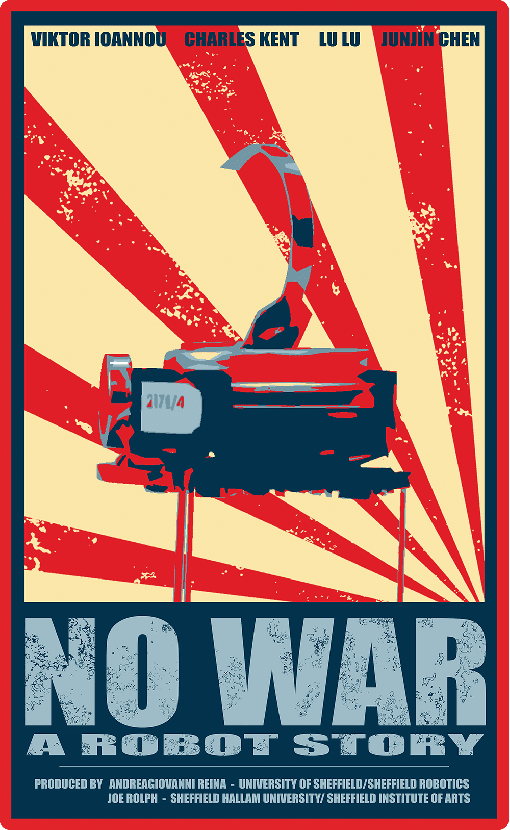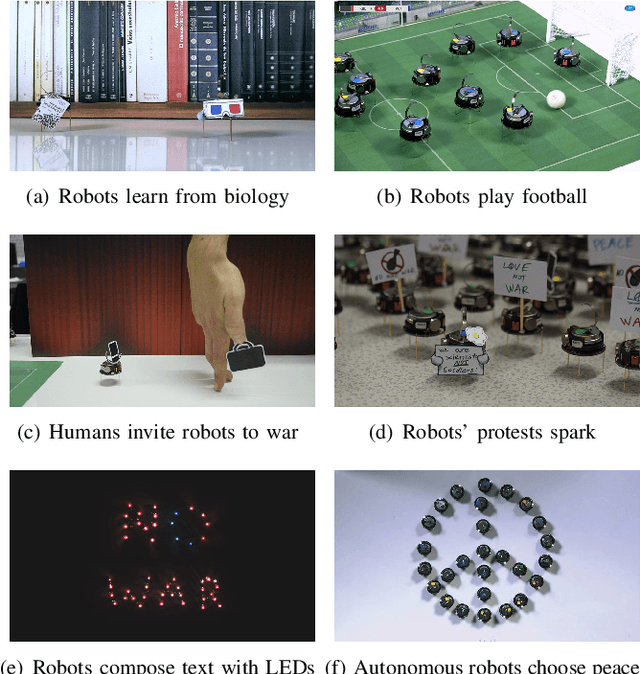James A. R. Marshall
Are Transformers Truly Foundational for Robotics?
Nov 25, 2024

Abstract:Generative Pre-Trained Transformers (GPTs) are hyped to revolutionize robotics. Here we question their utility. GPTs for autonomous robotics demand enormous and costly compute, excessive training times and (often) offboard wireless control. We contrast GPT state of the art with how tiny insect brains have achieved robust autonomy with none of these constraints. We highlight lessons that can be learned from biology to enhance the utility of GPTs in robotics.
Robots as Actors in a Film: No War, A Robot Story
Oct 27, 2019

Abstract:Will the Third World War be fought by robots? This short film is a light-hearted comedy that aims to trigger an interesting discussion and reflexion on the terrifying killer-robot stories that increasingly fill us with dread when we read the news headlines. The fictional scenario takes inspiration from current scientific research and describes a future where robots are asked by humans to join the war. Robots are divided, sparking protests in robot society... will robots join the conflict or will they refuse to be employed in human warfare? Food for thought for engineers, roboticists and anyone imagining what the upcoming robot revolution could look like. We let robots pop on camera to tell a story, taking on the role of actors playing in the film, instructed through code on how to "act" for each scene.
Beyond No Free Lunch: Realistic Algorithms for Arbitrary Problem Classes
Mar 16, 2010Abstract:We show how the necessary and sufficient conditions for the NFL to apply can be reduced to the single requirement of the set of objective functions under consideration being closed under permutation, and quantify the extent to which a set of objectives not closed under permutation can give rise to a performance difference between two algorithms. Then we provide a more refined definition of performance under which we show that revisiting algorithms are always trumped by enumerative ones.
 Add to Chrome
Add to Chrome Add to Firefox
Add to Firefox Add to Edge
Add to Edge